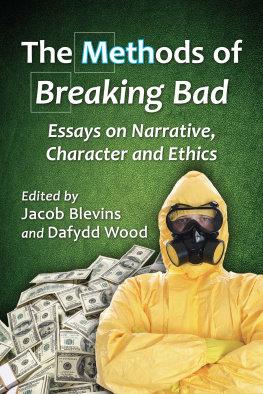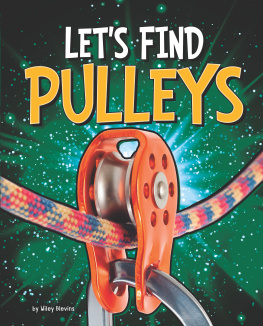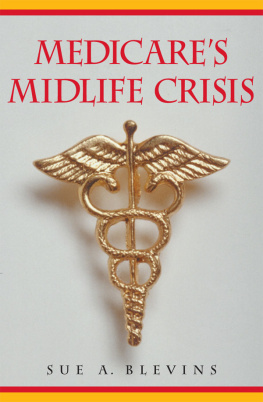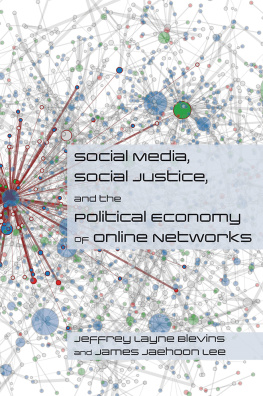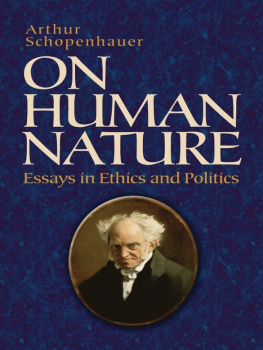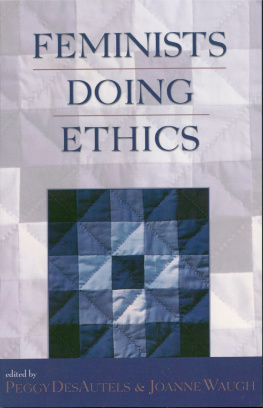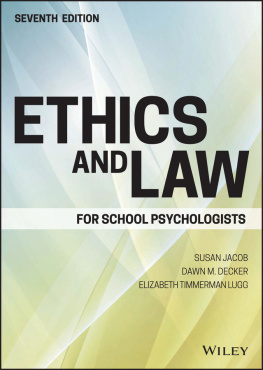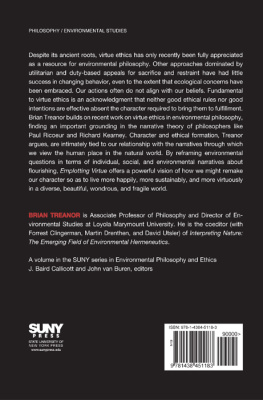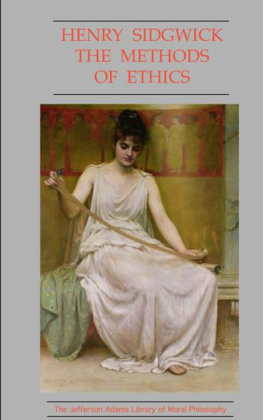Blevins Jacob - The methods of Breaking bad : essays on narrative, character and ethics
Here you can read online Blevins Jacob - The methods of Breaking bad : essays on narrative, character and ethics full text of the book (entire story) in english for free. Download pdf and epub, get meaning, cover and reviews about this ebook. year: 2015, publisher: McFarland & Company, genre: Detective and thriller. Description of the work, (preface) as well as reviews are available. Best literature library LitArk.com created for fans of good reading and offers a wide selection of genres:
Romance novel
Science fiction
Adventure
Detective
Science
History
Home and family
Prose
Art
Politics
Computer
Non-fiction
Religion
Business
Children
Humor
Choose a favorite category and find really read worthwhile books. Enjoy immersion in the world of imagination, feel the emotions of the characters or learn something new for yourself, make an fascinating discovery.
- Book:The methods of Breaking bad : essays on narrative, character and ethics
- Author:
- Publisher:McFarland & Company
- Genre:
- Year:2015
- Rating:3 / 5
- Favourites:Add to favourites
- Your mark:
- 60
- 1
- 2
- 3
- 4
- 5
The methods of Breaking bad : essays on narrative, character and ethics: summary, description and annotation
We offer to read an annotation, description, summary or preface (depends on what the author of the book "The methods of Breaking bad : essays on narrative, character and ethics" wrote himself). If you haven't found the necessary information about the book — write in the comments, we will try to find it.
Blevins Jacob: author's other books
Who wrote The methods of Breaking bad : essays on narrative, character and ethics? Find out the surname, the name of the author of the book and a list of all author's works by series.
The methods of Breaking bad : essays on narrative, character and ethics — read online for free the complete book (whole text) full work
Below is the text of the book, divided by pages. System saving the place of the last page read, allows you to conveniently read the book "The methods of Breaking bad : essays on narrative, character and ethics" online for free, without having to search again every time where you left off. Put a bookmark, and you can go to the page where you finished reading at any time.
Font size:
Interval:
Bookmark:


McFarland & Company, Inc., Publishers
Jefferson, North Carolina
LIBRARY OF CONGRESS CATALOGUING DATA ARE AVAILABLE
BRITISH LIBRARY CATALOGUING DATA ARE AVAILABLE
e-ISBN: 978-1-4766-1935-4
2015 Jacob Blevins and Dafydd Wood. All rights reserved
No part of this book may be reproduced or transmitted in any form or by any means, electronic or mechanical, including photocopying or recording, or by any information storage and retrieval system, without permission in writing from the publisher.
Front cover images 2015 iStock/Thinkstock
McFarland & Company, Inc., Publishers
Box 611, Jefferson, North Carolina 28640
www.mcfarlandpub.com
For Carol Wood
Jacob Blevins would like to express specific thanks to his wife Alison and his friend Lisa Tauzin for providing support during the trauma of Breaking Bads final season. He also owes thanks to three graduate students, Robert Beard, Luci Mireles and Katya Cummins, all of whom wrote research papers on Breaking Bad and at least partially planted the seeds for putting together a volume of essays.
Dafydd Wood would like to thank his children for frequently giving him time to work on the volume and watch the series. And, most important, he would like to thank his wife with whom he watched the series, from the pilot episode to Felina.
Together, the editors would like thank all the contributors for their hard work, insight, and willingness to put up with (and largely adhere to) the deadlines and consider the editorial comments we have made through the process of putting this manuscript together. We really could not be happier. Finally, as coeditors of this volume, we are also both very pleased and feel very fortunate to have had the opportunity to work with one another on this book. It has been a tremendous partnership and an editorial relationship we hope leads to other projects.
Jacob Blevins
Vince Gilligans Breaking Bad is a crowning achievement in a line of aesthetically and culturally sophisticated television series that have been produced over the last 15 years. Not only has the quality of these series been high, but, consequently, the personal investment audiences have made has been unlike anything seen in television before. With the rapid growth of social media and other outlets for fans to engage actively and participate in real time with these programs, the opportunity for fans to take a more active role in the development and dissemination of commentary, interpretation, and predictions has altered the way television is critically examined. In a sense, we all become critics, and as a result of that potential, filmmakers must be much more clever in the manner in which they construct character and narrative. In order to be a part of this new kind of television, creators, writers, actors must all engage in a much more nuanced form. Audiences can pause, rewind, and re-watch every episode of every show. Nuances can be talked out by fans; fans need to talk out these nuances. It is simply part of what quality television has to be today if it is to have longevity, to have real resonance for audiences.
Gilligan has taken full advantage of this more dialogic medium, even making narrative decisions based on audience response, but the editors have attempted to bring together a group of critically relevant voices in dialogue with one another and that will invoke continued critical discussion.
The essays in this volume draw out many of the intricacies of Gilligans creation, but undoubtedly the shows center is located in the titular character Walter White. White functions as the new manifestation of the tragic hero. We have seen in narrative history the cultural and literary importance of the hero, and we have seen that figure develop within various cultural contexts and dominant ideologies. In the broad heroic tradition of Oedipus, Hamlet, Willy Loman, and Michael Corleone, Walter White solidifies his place in that tradition, and while Gilligans hero shares many of the generic traits of those others, White is unique: a hero that emerges from the 21st-century contexts of health care concerns, a fallen economy, indefinite gender roles, gun violence, and the confrontation with the ethnic other (primarily in the immigration issues arising from Mexican border violence). Walter White must be a different kind of hero, one whose presence is located in a very different cultural context, but a context that is undeniably ours. Unlike representations of the tragic hero we have seen before, White is fallen when the series beginsor at least he unconsciously defines himself as fallen. He has missed his opportunity at the American corporate dream as he watches his former partners Gretchen and Elliot make billions in Graymatter, while he is a schoolteacher, underpaid and underappreciated. The show never really tells us why Walt sold his share of Graymatter for $5,000Walt and Gretchen seem to have very different storiesbut ultimately the reason does not matter. Walter identifies himself as a failure, and when he learns he has cancer and cannot pay for treatment nor feel confident that he can provide for his family after his death, Walt confronts the image of himself as that failure head on, deciding to pursue financial gains through cooking meth. With this, a reconstruction of his identity begins.
To a large degree, for five seasons, we as viewers witness the processes of this identity construction, a constant struggle to project an ideal image of the self amidst a cultural backdrop that constantly works to destroy or at least alter that ideal image. Perhaps an even better way to characterize the journey of Walter White is one of wish fulfillment. Had Gilligan made the poor, yet well-precedented, decision of concluding the series with the revelation that the audience had in fact been viewing an extended dream narrative of a disillusioned school teacher, we could see the entire dream as fulfillment of basic psychical drives: death, aggression, masculine control, and libidinal pleasure. Gilligan has given us Walts fantastical projection of himselfHeisenbergand through that we see the true Walter White emerge.
Several of the essays in this collection deal with the fragmented identity that Walt exhibits throughout the series, and how the self constantly searches for reconciliation between the disjointed elements of Walt. Jason Landrum in Say My Name: The Fantasy of Liberated Masculinity directly addresses the issues of fantasy and masculinity in the Walter White figure. Landrum, using Lacan specifically and psychoanalysis more generally, contends that the split personality of Walt serves as a new allegory of masculinity in the early twenty-first century, one that centers on the re-emerging nature of masculine loss. Philip Poe in Patriarchy and the Heisenberg Principle is also interested in the struggles of masculinity Walt faces as the head of household, the father, the provider. Poe identifies Walts adherence to traditional patriarchal ideology as the crucial factor that directs Walts actions; of course, the ideology itself breaks downhe destroys the family for which he should providedespite his continued desire and attempts to adhere to the ideology itself. Both essays demonstrate how these ideological pressures of manhood exert themselves on the figure of Walt. Both his identity as a father and husband (the provider) and his role as drug kingpin and father-figure to his partner Jesse are situated around a kind of masculine ideal.
Next pageFont size:
Interval:
Bookmark:
Similar books «The methods of Breaking bad : essays on narrative, character and ethics»
Look at similar books to The methods of Breaking bad : essays on narrative, character and ethics. We have selected literature similar in name and meaning in the hope of providing readers with more options to find new, interesting, not yet read works.
Discussion, reviews of the book The methods of Breaking bad : essays on narrative, character and ethics and just readers' own opinions. Leave your comments, write what you think about the work, its meaning or the main characters. Specify what exactly you liked and what you didn't like, and why you think so.

